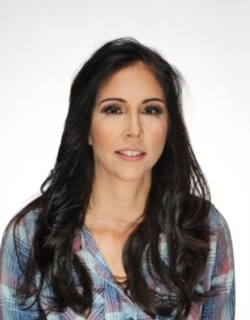Creating safe and welcoming spaces that reflect the needs of Indigenous students in the Catholic school system is critical to their success, educators said during an online panel discussion.
“We all have the right to appear and be recognized. We need to recognize the other in order to co-exist on this planet. How do we create opportunities for empathy?” said Dr. Sarah Twomey, professor and dean of education at St. Mary’s University in Calgary.
Those spaces create an environment for Indigenous Peoples to share their collective memory of injustice, said Twomey, one of four presenters during a panel entitled Catholic education and Indigenous People – where are we and where do we go? The March 3 event was co-sponsored by St. Joseph’s College at the University of Alberta and St. Mary’s University. It’s part of a Crossroads speaker series.

Pamela Sparklingeyes is the Braided Journeys program manager with Edmonton Catholic Schools. Braided Journeys student support centres provide academic, cultural, leadership, career exploration and support within a school setting. She shared insights about working directly with Indigenous youth for more than a decade.
“Students are attracted to the Braided Journeys program because they say they needed a place to belong, they needed a place to feel safe,” said Sparklingeyes.
“I feel that’s something teachers should think about in their school settings — how can we create spaces for our Indigenous students to feel safe.”
More than 900 First Nations, Metis and Inuit students per year receive support from the Braided Journeys centres. Back in 2009, only 17 percent of Edmonton Catholic Indigenous learners were graduating on time, said Sparklingeyes. Today, the largest school in the district sees an 80-per-cent graduation rate.
Indigenous education was one of the main themes of the Truth and Reconciliation Commission. Its 94 calls to action urged the federal, provincial, territorial and First Nations governments to work together to address the harm caused by residential schools and to move toward reconciliation.
Edward Jean, curriculum consultant with Indigenous Learning Services for Edmonton Catholic Schools, said he’s become even more invested in Indigenous culture since recently finding out about his own Indigenous heritage as both Micmac and Cree.
He took a theological approach to the question referring to the papal document Dominus Iesus that states the fullness of truth is found in Catholicism, but there is also truth in other religions such as Indigenous spirituality.
Julie Showalter of Okotoks shared her lived experience as a Grade 2 teacher and First Nations, Metis and Inuit liaison in her school district, providing enrichment and education. She is a cradle Catholic as well as Metis. She wore her Metis sash to her 2016 graduation from St. Mary’s University and started a new tradition that continues among Metis graduates.
In her school district, Showalter teaches the meaning behind the practices such as smudging, talking sticks, circles and sacred herbs. In her classroom she creates space for both a Catholic prayer table and an Indigenous prayer table.
Showalter showed a slide making the connection between the Catholic faith and Indigenous spirituality. For example, the Holy Spirit was likened to the Creator and incense and prayer are like smudging.
Showalter said her efforts have had mixed reviews.
“There have been a lot of people who identify with the way of praying, with the Creator, with the opportunities to deepen their faith and to explore more ways of expressing themselves,” Showalter said during the online panel discussion.
“I’ve also encountered people who really do have serious concern that they are going against their faith to a point where there is a refusal to participate.”
Elder Casey Eagle Speaker gave opening remarks, followed by an opening prayer in Cree. He prayed for safety and health for all after sharing that 17 of his family members have died from COVID-19.
Matt Hoven moderated the event. He’s an associate professor of sport and religion at St. Joseph’s College. He said he was very hopeful about the future of the Church following this presentation.
-Sara Francis is a Calgary writer and frequent contributor to Faithfully, the blog of the Diocese of Calgary
